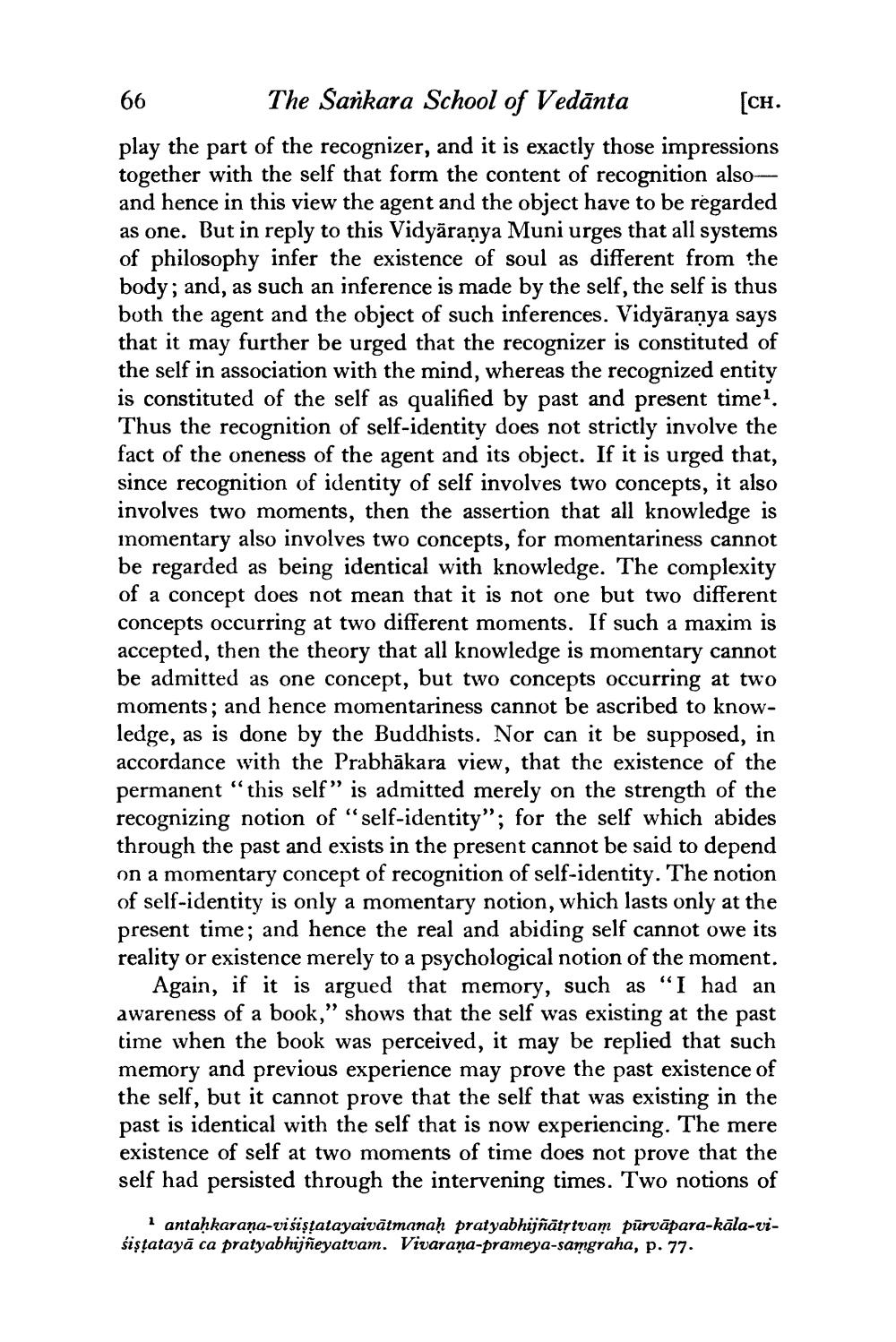________________
[CH.
The Sankara School of Vedānta play the part of the recognizer, and it is exactly those impressions together with the self that form the content of recognition alsoand hence in this view the agent and the object have to be regarded as one. But in reply to this Vidyāranya Muni urges that all systems of philosophy infer the existence of soul as different from the body; and, as such an inference is made by the self, the self is thus both the agent and the object of such inferences. Vidyāraṇya says that it may further be urged that the recognizer is constituted of the self in association with the mind, whereas the recognized entity is constituted of the self as qualified by past and present timel. Thus the recognition of self-identity does not strictly involve the fact of the oneness of the agent and its object. If it is urged that, since recognition of identity of self involves two concepts, it also involves two moments, then the assertion that all knowledge is momentary also involves two concepts, for momentariness cannot be regarded as being identical with knowledge. The complexity of a concept does not mean that it is not one but two different concepts occurring at two different moments. If such a maxim is accepted, then the theory that all knowledge is momentary cannot be admitted as one concept, but two concepts occurring at two moments; and hence momentariness cannot be ascribed to knowledge, as is done by the Buddhists. Nor can it be supposed, in accordance with the Prabhākara view, that the existence of the permanent “this self” is admitted merely on the strength of the recognizing notion of “self-identity"; for the self which abides through the past and exists in the present cannot be said to depend on a momentary concept of recognition of self-identity. The notion of self-identity is only a momentary notion, which lasts only at the present time; and hence the real and abiding self cannot owe its reality or existence merely to a psychological notion of the moment.
Again, if it is argued that memory, such as "I had an awareness of a book," shows that the self was existing at the past time when the book was perceived, it may be replied that such memory and previous experience may prove the past existence of the self, but it cannot prove that the self that was existing in the past is identical with the self that is now experiencing. The mere existence of self at two moments of time does not prove that the self had persisted through the intervening times. Two notions of
antahkarana-višişğatayaivātmanaḥ pratyabhijñātņtvam pūrvāpara-kāla-visişğatayā ca pratyabhijñeyatvam. Vivarana-prameya-samgraha, p. 77.




